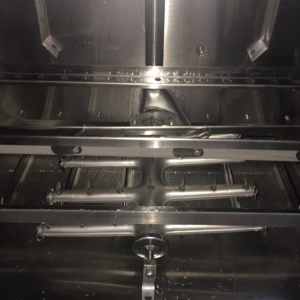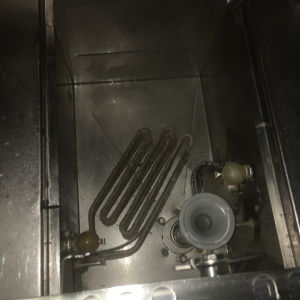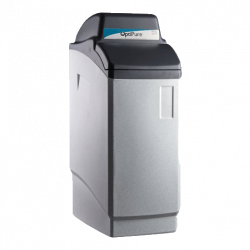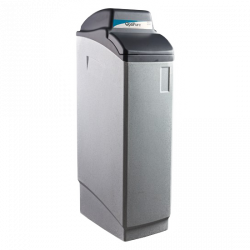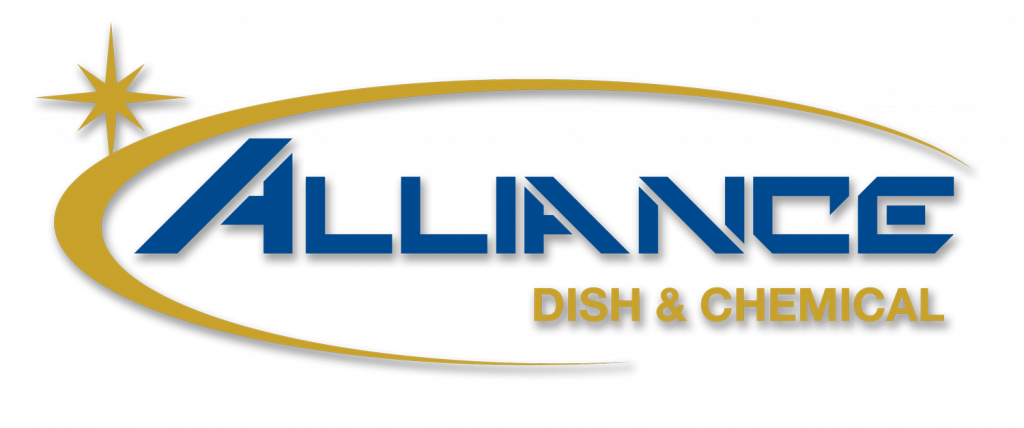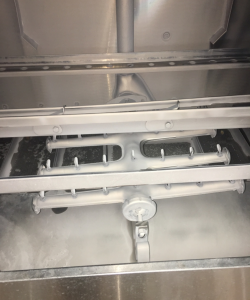
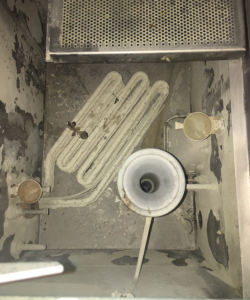
Hard water can pose problems for commercial dishmachines.
The most noticeable issue may be spotting on glassware, utensils, and colored dishes. This spotting makes your place settings look and feel dirty even after they have been washed. There are special detergents and rinse aids that are engineered to help fight spotting due to hard water, but they are often expensive and limited in how much they help with results.
Limescale buildup in your dishmachine can cause costly inefficiencies, equipment downtime, and expensive repairs. Limescale creates a rock like layer that coats the elements in your dishmachine and booster heater prohibiting proper heating of your water. This can lead to higher utility usage, failed components, and failed health inspections. This same coating can affect probes used to deliver chemicals and monitor water levels causing your operating costs to skyrocket. You can always delime your machine but it needs to be done on a regular basis with a quality delimer.
Dishmachines that conserve water are becoming more popular throughout the U.S.. Using less water in cleaning your dishes not only benefits the environment, but also provides a monetary savings to you by reducing your facility’s water consumption. Because many newer machines are engineered to use half the amount of water as the older models, the margin of error for water volume is very small. As an example, a small amount of limescale buildup in a final rinse bar can affect the amount of water refilling the machine causing many issues that on the surface do not seem related to the limescale buildup.
What do all of the above have in common? Limescale is costing you money. Inefficient equipment and machine downtime will increase operational costs and cause frustration among staff which can also lead to higher turnover. Failed components will lead to costly service calls and water restrictions, especially in the newer low water usage machines, can be very time consuming and expensive undertakings. As far as delimer, it is a necessary evil as you are literally dumping an expensive product down the drain.
If your warewash is coming out spotted due to water hardness, or your dishmachine is having issues with limescale buildup, the solution may be to soften your water. If your building does not have a water softener prior to the main water heater, ASC1 does offer special softeners that can be installed on your hot water line before the booster heater. These units are sized specifically to soften only the water for your dishmachine therefore they use very little salt and are extremely efficient.
Softened water will make your clean dishes look better right out of the machine while reducing your chemical usage, preventing costly repairs and lengthening the life of your equipment. While softened water may not be recommended for all of the equipment in your kitchen, it can be a great asset for your dishmachine and place settings.

